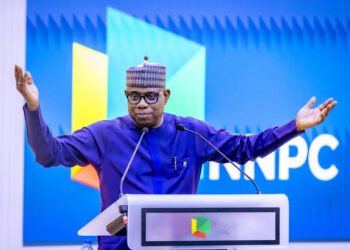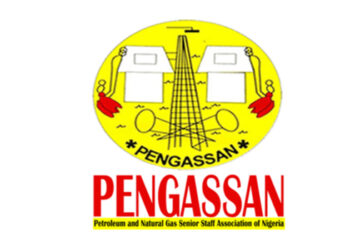Congratulations to my dear brother, Aliko Dangote, on the success achieved so far since the Dangote Refinery commenced operations. It is a historic leap for Nigeria’s energy independence and economic future.
But more importantly, credit must go to President Bola Ahmed Tinubu for doing what no other leader before him had the political will to execute: the full deregulation of the downstream petroleum sector.
This singular act has broken the grip of entrenched interests and ushered in a new era of transparency, healthy competition, and customer-centric service delivery.
In a sector long plagued by rent-seeking, subsidy fraud, product diversion, and smuggling, this reform marks a decisive break from the past and lays the foundation for a more efficient and accountable energy market.
Yet despite this progress, there are still voices clinging to the old ways. Voices determined to resist change, even when it’s clear the tide has turned.
I’ve followed recent commentary around fuel supply issues and feel compelled to provide some perspective, especially as it relates to the future of this country, which remains threatened by entrenched cabals who still believe they can block the winds of reform.
But history has shown time and again: you can delay change, frustrate it, even sabotage it but you can never stop it. I founded DAPPMAN in 2002 (23 years ago) with a clear mission: to challenge the dominance of the major marketers and give independent depot owners a fair platform to thrive.
I personally structured the group, appointing the late George Enenmoh, then MD of Ascon Oil, as Chairman, while I served as Vice Chairman and Sayyu Dantata as Secretary. At the time, depot ownership was strategic. We were filling critical supply gaps left by an inefficient system.
But times have changed. Many of the original players have exited the scene, and those left are clinging to assets that no longer reflect today’s business realities.
I advised some of them as far back as last year to sell their depots as scrap while they still had value. Nigeria now has over 4 million metric tons of storage capacity, most of it idle. With the Dangote Refinery now supplying fuel locally, the old business model is crumbling.
Zenon Oil pioneered the modern diesel business in Nigeria and grew to become the largest supplier in the country. We built depots to store our imported diesel because the market was import-driven and riddled with inefficiencies.
But with Dangote’s refinery fully operational, those gaps no longer exist. We now have domestic production and local supply efficient, reliable, and proudly Nigerian.
Furthermore, we must not fail to recognise the attendant benefits of eliminating the gridlock around the Ibafon, Tincan, and Apapa areas due to the operations of the Dangote Refinery.
More than just producing fuel, Aliko has elevated the entire logistics chain. He has purchased 8,000 brand new CNG eco-friendly trucks that will be distributed across the country with less pollution and fewer breakdowns, unlike the aging, rickety trucks still used by some operators. I know this business intimately.
I was king of it and at the peak of it in 2005 (20 years ago), I was conferred with the life patron of the Petroleum Tankers Drivers Union (PTD ) by Mr. Akinlaja. So, when I say the game has changed, I speak from deep experience.
What is DAPPMAN fighting for today? To preserve a model built on fuel imports, subsidy exploitation, and outdated infrastructure? That era is fast disappearing. The setting up of depots was mainly to collect PFIs.
No depots, no PFIs from NNPC, who werethe sole suppliers of gasoline at the time and which thus led to the breeding of complacent importers whose sole agenda was on arbitrage and subsidy margins.
Since PFI is gone, I see no reason why Dangote Refinery should subsidize DAPPMAN with N1.5 trillion which they are asking Dangote Refinery to pay and subsequently pass this cost to consumers.
I salute the courage of my brother Aliko Dangote, like Amazon Incorporated in bringing about transformative change in the downstream sector.
On subsidy, I personally warned President Goodluck Jonathan that he was being misled. The system was built to benefit depot owners, and DAPPMAN members became the primary beneficiaries.
Over ₦2 trillion was siphoned through questionable claims, all tied to depot licenses. The policy rewarded neither transparency nor innovation; it encouraged rent-seeking and corruption.
Let’s also address a myth that continues to be repeated. Depots do not drive employment as some claim. A typical depot employs perhaps five people, gatekeeper included.
In contrast, a single filling station can provide jobs to dozens of Nigerians—from pump attendants to cashiers, security personnel, and cleaners.
If anything, DAPPMAN members should be focusing on owning and scaling last-mile retail outlets, not holding on to tanks built for a fuel import economy that no longer serves us.
The global picture is instructive. Depots in Amsterdam or Houston were designed to serve export markets, especially Africa. With Nigeria now refining locally, such infrastructure is increasingly unnecessary. The same thing happened in the cement industry.
Once Nigeria started producing cement locally, the bulk carriers that used to dock at our ports were retired, and many were sold as scrap. The same outcome awaits fuel depots.
If DAPPMAN members do not adapt, they will not only become irrelevant, they may go bankrupt. Instead of resisting progress, they should consider selling, restructuring, or investing in new value chains.
In fact, if they truly believe in competition, they could even come together and acquire the Port Harcourt Refinery and see if they can succeed where NNPC could not.
Even in developed markets, refinery operators are downsizing their depot footprint. Many are converting them into bonded warehouses or exiting completely. Folawiyo Group, known for its foresight and integrity, sold its depot and exited early. That is strategic thinking.
DAPPMAN had its place, but today, its relevance is fast fading. We must stop clinging to outdated privileges and focus on a new era built on self-sufficiency, transparency, and sustainable value creation.
Aliko’s refinery is not the problem; it is the solution.
Let’s move forward.
Africans are proud of you. And yes, my dear brother Aliko, you can now go to Monaco and rest jejely like me. You’ve earned it.
Note: This opinion article was sent in by billionaire businessman and industrialist, Femi Otedola.

























Chief Femi Otedola’s truism has a seal of finality. Although, bad advice to Aliko Dangote to retire to Monaco to rest. It is because Dangote didn’t rest in Monaco that Nigeria is free from the rent seekers and subsidy clowns and Nigeria has Dangote refinery. Moreover, Dangote Refinery isn’t successful yet but on route to being a successful $100 billion entity in 5 – 10 years time. While the likes of Otedola wakes up every morning and looks at his money/wealth and smiles and enjoys the life, the likes of Dangote risk their wealth and create jobs and opportunities for Nigerians and Africans. We love you Alhaji Aliko Dangote.